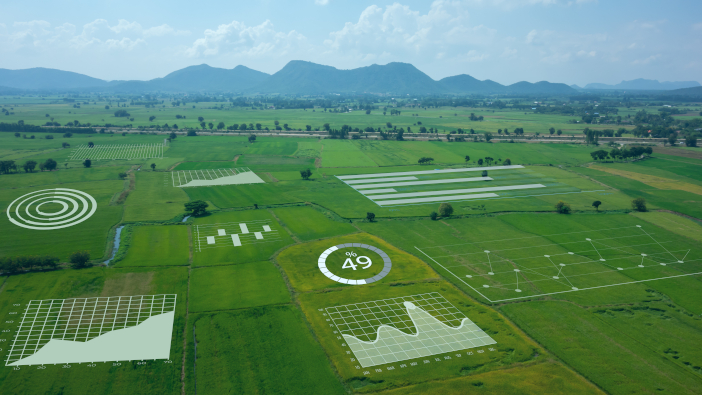The Royal Agricultural Society of England (RASE) has now released its 2022 report, Farm of the Future: Journey to Net Zero, as well as its series of technical, individual reports that offer personalised guidance for the decarbonisation of individual UK agricultural sectors.
The most recent report builds upon the policy-based Farm of the Future: Journey to Net Zero report, published in October 2021 as a pre-cursor to the COP26 Climate Change Conference. The 2022 report states that the ‘primary function of farmers is to produce food’. As such, and with farmers managing a large proportion of the UK’s landmass, they have a ‘vital role to play in the implementation of the country’s low carbon transition plans’.
However, both the Farm of the Future and the technical sector reports insist that government must offer sufficient support to farmers during agriculture’s low carbon transition. ‘If farmers are expected to invest in the transition, they need reassurance that the benefits will justify their costs.’
Governmental support
The reports concur that the successful decarbonisation of agriculture requires the united efforts of all government departments; albeit, alongside the synergistic endeavours of farmers, processors, and retailers.
Philip Gready, chairman of RASE, said: “Investment will be required from the government and the private sector,” ensuring that farmers (both new and well established within the industry) have the appropriate access to research and advisory services. This ministerial support will encourage farmers to adopt low carbon practises, while maintaining the commerciality of their businesses.
Furthermore, as innovative approaches and technology solutions become more available to farmers in their bid for net zero, ‘demonstration is key.’ ‘The existing network of farm demonstration sites should be extended to encourage the uptake of nature-friendly sustainable farming practises, emerging technologies and rural renewable energy opportunities.’
To encourage the extension of such sites, the government must sufficiently support the new Environmental Land Management schemes (ELMs); to encourage more farms to become ELMs case studies and show emissions reduction leadership.
Standardised measurement systems
As farming practises evolve, to incorporate net zero target aims, carbon capturing and greenhouse gas (GHG) emission measurement systems must also develop: in a manner which ensures they will be standardised, transparent, and provide a clear benchmark for all, across every sector/industry and worldwide.
A universal and transparent measuring system will allow clarity surrounding GHG emission comparisons and quantifications. This would increase farmer’s confidences in the decarbonisation systems, while providing ‘sound economic valuation of natural capital.’
Farm vehicles and future fuels
The ‘farm vehicles and future fuels’ report criticised the policy failure that excluded agriculture from the replacement pathway for red diesel, calling it ‘a major oversight’ that ‘should be given greater priority by government.’ With that, it stated that agriculture must consider a replacement primary fuel for farm vehicles. Substitutes could include electricity or liquid or gas biofuels, such as on-farm biomethane generation/supply and potentially hydrogen.
Gas, with its higher energy density, ‘offers greater potential than electricity for heavy vehicles and machinery,’ however, the report also underlined agriculture’s need to look beyond increasing farm vehicle size to instead use smaller, more compact, controlled traffic farming systems, to prevent soil compaction.
UK cereal production
To decarbonise the UK cereal sector, the report noted that existing arable technology and knowledge will be key. With increased public and private funding, innovations could be better demonstrated and thus more widely adopted. The better integration of farm data platform technology will ease the collection of performance metrics, for more meaningful decision making that will enable farmers to maintain both commercial viability and reduce GHG emissions.
Horticulture production
According to RASE, horticulture’s decarbonisation relies on the integration of pressure from consumers, in the way of diet changes and reduced plastic uses, regulators, retailers, and investors, into the sector’s commercial systems.
‘Glasshouse heating, transport and refrigeration is the most GHG emissive elements of the horticultural supply chain,’ therefore, any waste product adds significantly to emission values. To lessen both emissions and waste, ‘increasing local production of higher value produce has to be a priority with the transition to a more plant-based diet.’ Higher value produce would include, and ‘should be focused on’, horticultural crops and products that deliver the most environmental gain.
The report also indicated a need for smaller farms and horticultural businesses to have access to an industry body that would fund research into best practises and innovative solutions, for the sector’s decarbonisation and viability.
UK intensive meat production
For UK meat production, improving KPI’s and livestock health ‘will mitigate GHG emissions.’ This, along with the development of a clear strategy, which must be shared with policy makers, the media and consumers, will address the rhetoric around agriculture’s high GHG emissions and ‘improve consumer confidence in the industry.
UK dairy production
Like the meat sector, improving livestock health, via better husbandry practises and technologies, will help the dairy sector deliver a better balance between economic viability, environmental responsibility and social acceptability.
The report sets out that, to meet decarbonisation targets, farmers, milk producers and processors must work closely together, to develop strategies that address the wider environmental impacts of the complex supply chain. Such strategies would include ‘increasing research into curbing bovine emissions,’ for example, ‘improved handling and storage of manures, including covered stores, low emission spreading equipment and on-site anaerobic digestion.’
The report concluded that ‘change in dairy farming practices and management will be driven by farmers who show a desire to harness novel technologies and innovation, such as methane reducing feed additives, targeted application of slurries and decarbonisation of fossil fuel derived fertilisers.’


